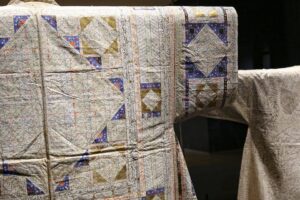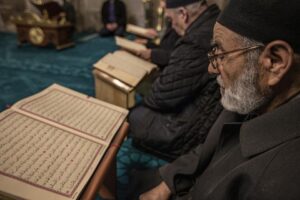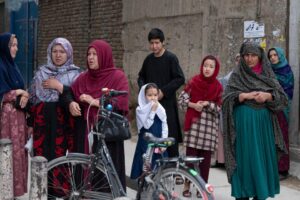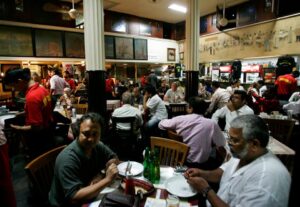Ramadan is the holiest month in Islam, during which Muslims abstain from eating and drinking from sunrise until sunset.
According to Islamic belief, Ramadan marks the month when the holy book Quran was revealed to Prophet Muhammad more than 1,400 years ago.
The start of the month is determined by the sighting of the crescent moon, which marks the beginning of the Islamic lunar month. Countries rely on the testimonies of moon-sighters and astronomical calculation to determine the start of Ramadan.
This year, the first day of fasting is expected to be Thursday, March 23, subject to the sighting of the new moon in different parts of the world.
The Islamic calendar —the Hijri calendar — is based on the moon’s cycles, varying from 29 to 30 days. This is unlike the Gregorian calendar, which is based on the solar year. As a result, the start and end of Ramadan can vary by a day or two each year.
The moon sighting is a significant part of Islamic tradition to determine the important days. Moon sighting is undertaken by astronomers and religious scholars in countries worldwide. In some places, the sighting of the moon is done with the naked eye, while in others, telescopes or other advanced technology are used.
Once the crescent moon is sighted, Muslims mark it as the start of Ramadan and their month-long fast.
The end of Ramadan is again marked by the sighting of the next crescent moon, which signals the beginning of Eid al Fitr, one of the two big festivals of Muslims. This is a time of celebration, with feasting, charity, gift-giving, and socialising with family and friends.
Ramadan and charity
Muslims worldwide observe the month of Ramadan differently, but certain practices and customs are standard across the Islamic world.
One of the most important aspects of Ramadan is fasting. During the month, Muslims abstain from food, drink, and other physical needs from sunrise until sunset. This is intended to help believers empathise with the less fortunate and to encourage self-discipline and spiritual reflection.
In addition to fasting, Muslims also pray and engage in acts of charity and goodwill. Many mosques offer additional prayers and sermons during the month of Ramadan.
Young or old, Muslims of all ages are encouraged to read the Quran during this month.
Tarawih prayer is another aspect of Ramadan that gives Muslims a chance to be close to God and also a chance to socialise as people gather in mosques to offer special prayers. Tarawih is an additional prayer performed during the month after the Isha prayer, one of the five daily prayers of Muslims.
Charity is also essential to Ramadan, and Muslims are encouraged to give generously to those in need. Many mosques and organisations offer food, clothing, and other necessities to the poor and needy during the month, and many Muslims also make special donations to charity during this time.
Ramadan is also a time for family and community. Many Muslims break their fasts with family and friends, and it is common for mosques and community organisations to hold iftar meals, where people can come together to break their fasts and socialise.
The month of Ramadan is a time of spiritual renewal and community building for Muslims around the world. It is a time to focus on faith, family, and charity and to reflect on the values that are at the heart of Islam.
Why different dates?
There are two views on the determination of the new moon in Islamic jurisprudence – those who believe Ramadan must be determined by the visibility of the new crescent by the naked eye and those who believe scientific measurement and calculations are enough.
By using advanced technology and scientific measurement, it can be known when the crescent will be formed. On the other hand, visibility of the new crescent by the naked is only possible 8-10 hours after the crescent is formed.
Currently, many countries like Türkiye determine the month based on technology and scientific calculation, while others like Saudi Arabia, Bangladesh, Pakistan and India determine it based on visibility by the naked eye.
However, Islamic scholars have stated that both ways of moon sighting are permissible and that people should act according to their local situations.


















Be First to Comment